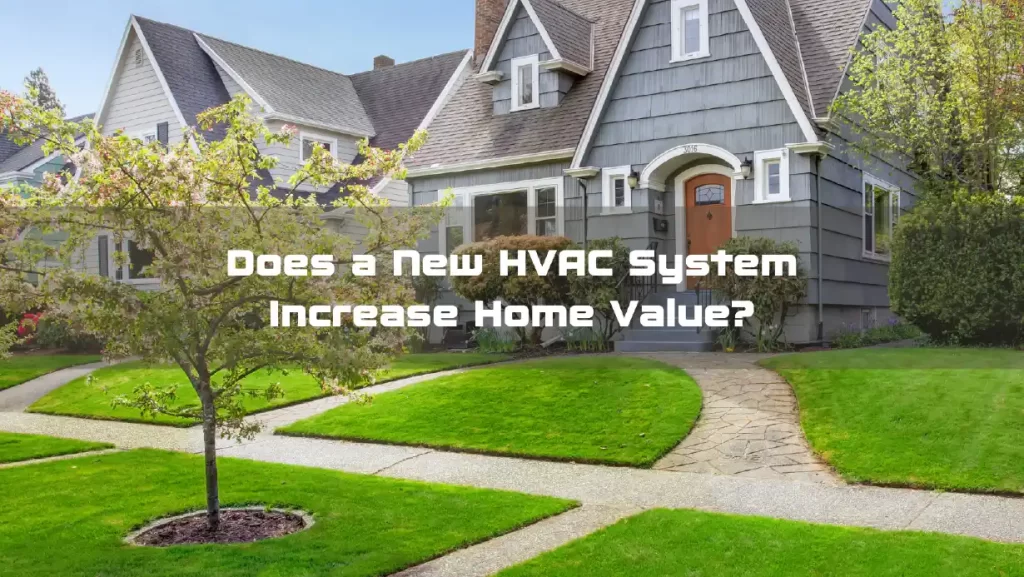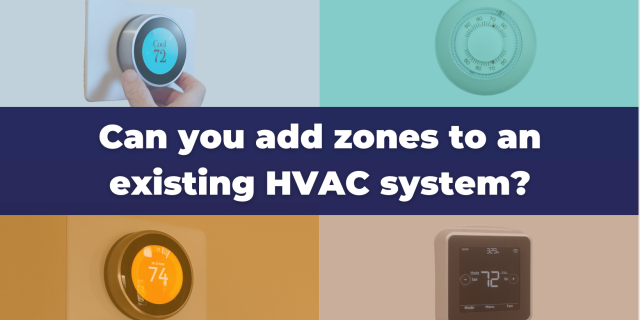Unveiling the Secret: Does a New HVAC System Increase Home Value?

If you’re looking to increase the comfort of your home or thinking about selling your house, you might be wondering, “Does a new HVAC system increase home value?” In this post, we will explore the role of an HVAC system in a home, its impact on home value, and the potential benefits of investing in a new system.
Understanding the Role of an HVAC System
Let’s peel back the layers and dive into the heart of your home—the HVAC system. Your Heating, Ventilation, and Air Conditioning system works tirelessly to keep your home’s climate enjoyable, no matter what Mother Nature decides to throw at it. Think of it as your home’s personal weather station, allowing you to create an oasis of comfort within your four walls.
Your HVAC system is also an essential player in maintaining healthy indoor air quality. By controlling humidity and ensuring proper ventilation, it becomes your home’s first line of defense against allergens, dust, and other airborne irritants.
If the weather in your area swings from scorching summers to bone-chilling winters, the HVAC system rises in prominence. A well-maintained HVAC system in such areas is not just a matter of comfort, but a necessity.
So your HVAC system is much more than a convenience; it’s an integral part of your home, directly influencing your comfort, health, and even the value of your property.
How an HVAC System Affects Home Value
In the realm of property value, an HVAC system can pack a considerable punch. Your HVAC system’s impact on home value depends on two factors: the age and efficiency of your system, and the climate where you live.
Picture this: a shiny, high-performing HVAC system, expertly installed and ready to combat even the most extreme weather. To potential buyers and real estate appraisers alike, this could be a major value-add to your home. This is especially true in regions where the weather dances from sweltering heatwaves to icy chills, and the need for a robust HVAC system is heightened. Here, your top-notch HVAC system not only helps in climate control but also increases your home’s attractiveness to prospective buyers. An upgraded HVAC system may very well be the hidden key to unlock a boost in your home’s value.
Energy Efficiency and Savings
The latest HVAC equipment models are designed with energy efficiency at their core, and they offer a passport to lower monthly energy expenses. The savings accrued over time can help counterbalance the upfront expenditure of getting a new system installed, making it a smart financial decision.
When it comes to selling your property, an energy-efficient HVAC system could be the ace up your sleeve. Buyers are increasingly conscious of their environmental impact and are willing to pay a premium for homes equipped with energy-saving features. The promise of reduced energy bills, coupled with the appeal of eco-friendliness, can make your home stand out in the real estate market.
So, whether it’s the lure of savings, sustainability, or selling advantage, a new energy-efficient HVAC system holds immense potential.
Comfort and Indoor Air Quality
A new HVAC system delivers more than just monetary advantages, though. Picture the serenity of a home where advanced airflow techniques minimize irritating allergens and dust particles, creating an environment where you breathe cleaner, healthier air.
A world where the temperature remains consistent in every corner, regardless of the outdoor weather. Gone are the days of dreading the frigid kitchen or the sauna-like bedroom; your new HVAC system stands guard, maintaining a uniform temperature throughout your home.
Maintaining a comfortable temperature throughout your home is where Arzel Zoning comes in. Adding zoning to your HVAC system ensures that each area of your home is getting the perfect amount of heating or cooling. Instead of blowing cold or hot air everywhere, zoning lets you target your heating and cooling to the areas where it’s needed. See what zoning can do in our HVAC zoning explainer video.
A new HVAC system isn’t merely about heating and cooling. It’s about coming home to a sanctuary that enhances your quality of life. So, when you opt for a new HVAC system, you’re not just making an investment in your property; you’re investing in a lifestyle upgrade that’s certain to bring a world of difference to your daily living.
The Return on Investment (ROI) of a New HVAC System
Purchasing a new HVAC system is a major expense. You have to look at little deeper to see its incredible value. Picture the added allure your home holds for potential buyers with a shiny, top-tier HVAC system in place. It’s a strong selling point that can translate into a higher sale price, and often, a swifter closing deal.
But it’s not just about enhancing your home’s resale value. The power of an energy-efficient HVAC system extends to monthly savings on your utility bills. The long-term savings can be substantial.
A cutting-edge HVAC system also brings the priceless gift of comfort to your everyday life. Including zoning in your new system eliminates temperature imbalances. Your new HVAC system can also include features that improve indoor air quality. These are returns that you cannot put a price tag on.
So, while the initial investment may be daunting, the ROI of a new HVAC system, in tangible and intangible forms, certainly makes a compelling case.
Making the Decision: Is a New HVAC System Worth it?
Embarking on the journey of HVAC system upgrade requires thoughtful consideration of various factors. Think about the current state of your HVAC system. Is it falling behind in efficiency? Does it leave you wishing for more comfort? If so, a new system could be just the revitalization your home needs. And let’s not forget the long-term energy savings a new system promises. It’s like inviting a personal finance guru into your home, guiding you towards lower energy bills and greener living.
Whether your plan is to stay put and enjoy your comfortable oasis or entice potential buyers with an efficient, high-performing HVAC system, it’s an investment that yields dividends both now and in the future. But perhaps the most significant deciding factor is the quality of life improvement that a new HVAC system brings. It’s not just an upgrade; it’s a game-changer, transforming your living space into a haven of comfort and health. That’s the real answer to the question, “Does a new HVAC system increase home value?”
To learn more about the newest HVAC systems on the market today, talk to your local contractor. Don’t have one? Take a look at our contractor locator to find a contractor in your area who is familiar with Arzel zoning systems.






